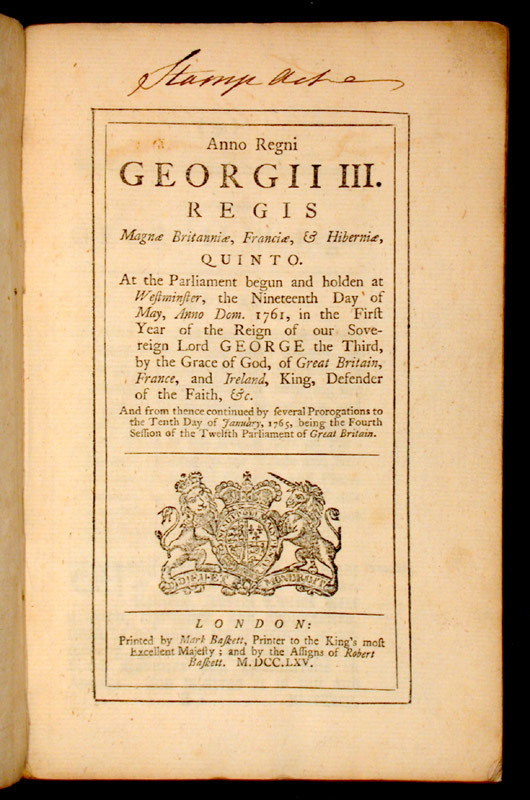Stamp Act (1765)
An Act for Granting and Applying Certain Stamp Duties and Other Duties, in the British Colonies and Plantations in America...London, Mark Baskett...1765.
Lilly Library E215.2 .G68
On March 22, 1765, the Stamp Act was passed by Parliament without debate and was to become effective November 1 of that year. The apparent purpose was to raise £60,000 yearly in the colonies in order to help support the cost of maintaining British troops there, a cost totaling £350,000 annually. In fairness to the colonies, the money collected would remain in America, and Americans would be appointed stamp agents. However, this small token of generosity from Parliament did little to cool the growing anger of the colonists who felt that this act impinged upon their rights as British subjects. The British Constitution accorded Englishmen the right of being taxed only by representatives of their own choosing. The colonists had no such representation in Parliament; therefore the Stamp Act was unconstitutional.
With this act, the colonists' anger reached the boiling point. The frustration was now to take the form of overt rebellion. The previous Molasses Act, Navigation Acts, and Sugar Act suddenly were seen as an ominous prelude to this final blow, the enslavement of British subjects by their own British government. The history of the period from the signing of the treaty ending the French and Indian War in 1763 to the first Continental Congress in Philadelphia is, Winsor believes, "a narrative of the attempt by the British ministry to enforce certain measures upon unwilling colonists, and of the resistance of the colonists to those measures" (Winsor VI:l9).
Bound with this is a copy of repeal of the Stamp Act, London, 1766.

